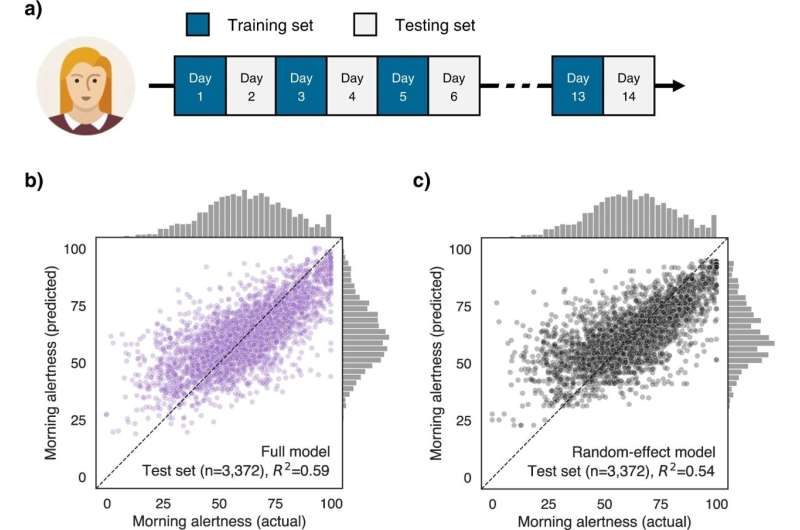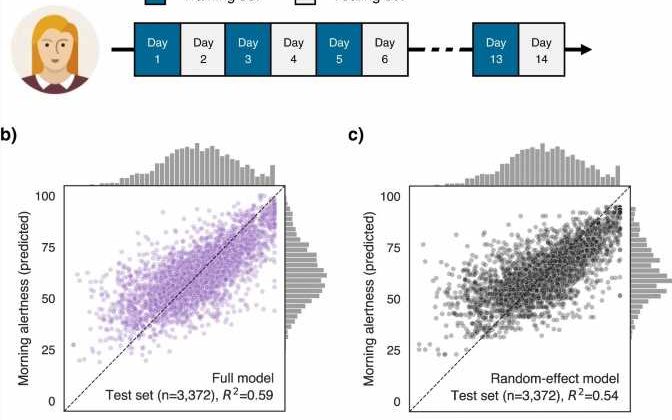
A team of researchers affiliated with multiple institutions in the U.S. and the U.K. has isolated factors that they believe have an impact on how awake and/or alert people feel during the day. In their paper published in the journal Nature Communications, the group describes their study.
Prior research has shown that more people than ever are complaining of feeling tired, sleepy and unalert during the daytime. Such complaints have been connected to increases in motor vehicle and work accidents and also sloppy job performance. In this new effort, the researchers noted that little research has been conducted looking into the factors that contribute to daytime alertness. To rectify that problem, they conducted a study of their own.
The researchers recruited 833 volunteers (many of whom were either identical or fraternal twins) to undergo testing for two weeks. Each adhered to a prescribed diet and wore a watch that recorded their sleep and physical activity and also their glucose levels. They also recorded the food they ate using a custom phone app, which they also used to record their level of alertness.
After the two-week period, the researchers found some patterns. For example, those people who slept longer reported feeling more alert the next day—no surprise there.
But they also found that it was not duration that led to an increase in alertness, but the time that they woke up—waking up later than normal, they found, made the volunteers feel more alert, at least during the morning, even if they did not go to bed late. They also found that the volunteers were more alert on days when they were physically active the day before. And they found that eating a high-carb breakfast, such as muffins, resulted in higher morning alertness.
Drinking pure glucose had them feeling even more alert. A high-protein breakfast, on the other hand, had the volunteers dragging in the morning.
The researchers also found four factors that most contributed to daily variances for the volunteers: age, sleep, mood and frequency of eating—eating less often seemed to reduce next-day fatigue.
More information:
Raphael Vallat et al, How people wake up is associated with previous night’s sleep together with physical activity and food intake, Nature Communications (2022). DOI: 10.1038/s41467-022-34503-2
Journal information:
Nature Communications
Source: Read Full Article
